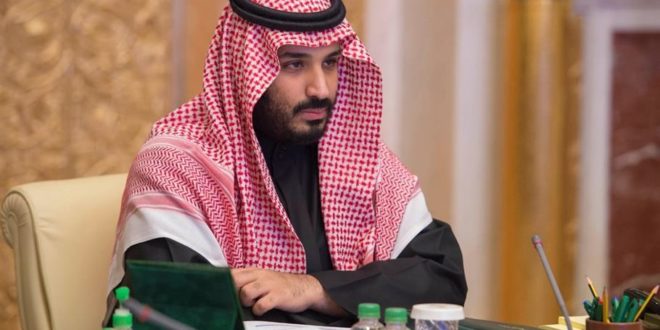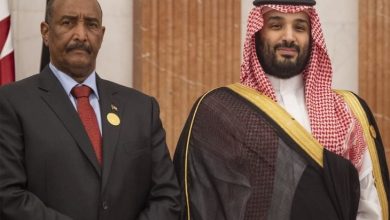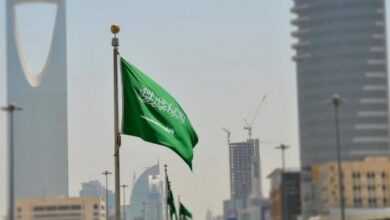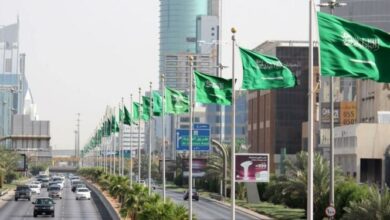US report: Anger in KSA of Bin Salman’s economic policies

The American Bloomberg Agency highlighted the escalating anger in the Kingdom due to the policies of Crown Prince Mohammed bin Salman in light of the escalating deficit in the Kingdom’s budget, high unemployment rates and high prices.
The agency said in a report that it is not clear that there are any signs of austerity due to the economic downturn in the Kingdom, but in the midst of these developments some of the results of bin Salman’s steps provoke sectors of the population, for reasons that are not religious or social but class.
Inside a replica Saudi copy of Carbone, the Michelin-starred Italian restaurant in New York, customers demanded Wago steaks for 500 Saudi riyals (equivalent to $ 133), just over the minimum amount of money needed to secure reservations for weeks in advance.
Nearby, musicians play in scented arenas, while women drive golf carts to deliver customers to a selection of the most popular restaurants around the world.
The “Riyadh Season” activities – a group of food shows, concerts, sports shows, and festivals under the auspices of the government – express many of the ideas that bin Salman wishes to adopt in his Kingdom.
Since his rise to become the de facto leader of the country, Bin Salman has sought to change the famous idea of the Kingdom as a conservative Islamic state backed by oil, and has started implementing historical decisions, including limiting restrictions on playing music, cinema, and clothing, as well as opening up to foreign visitors.
However, those out-of-the-box decisions contained in bin Salman’s policies and the controversy they sparked highlighted a double challenge facing the authorities.
As Saudi officials look to foster acceptance of the changes introduced by bin Salman’s policies, a new challenge has emerged other than rejection on religious grounds, or as a result of conservative population trends.
This challenge is to ensure that the less wealthy are not marginalized, because of the lifestyle choices they cannot afford, and the need to make them richer, so that their expenditures influence the nurturing of the emerging economic recovery.
In this regard, Saad al-Bazi, a professor of literature and a former member of the Saudi Shura Council, said: “There was a rush towards entertainment and entertainment, in a way that kept many people out of the landless.”
Al-Bazi supports the transformation plan, but fears that the high cost of some new activities will exclude the people.
Data indicate that spending consumption recovers after faltering. The drop in oil prices since 2014 forced the government to cut generous subsidies and slow the economy, prompting Saudis to reduce their expenditures.
Bin Salman’s policies not only anger the conservatives, but also marginalize the landless.
Recently, officials have said they are retracting government spending to allow private investment to advance. The non-oil economy grew by 4.3% in the third quarter of last year 2019, witnessing the fastest growth rate since 2014.
The Riyadh season festivals are part of the deal. They have achieved revenues of one billion Saudi riyals over two months, since their establishment in mid-October, and attracted ten million visitors, despite the fact that they did not achieve a profit for the government.
Asymmetry is not new in the Kingdom, as many Saudis display the contrast between the legions of royal princes, beggars at street crossings, as a fact of life.
The average monthly income of the average family is 11,494 Saudi riyals, which is equivalent to approximately $37,000 a year.
Before Muhammad bin Salman began that jolt of change, there were limited apparent means of entertainment for the wealthy in their spare time. Conservatives rejected music, no cinemas, and moral police roamed the streets to implement gender segregation.
While the government is currently sponsoring concerts, as well as theatrical performances, the spending is pumped back home after it was directed abroad.
Foreign currency credit card transactions fell by 25% in November, compared to last year. The latest data indicated an increase in cash withdrawals inside the Kingdom, along with transactions of credit card “Point of Sale” systems by 5% in the same month.
Also, restaurants and cafes witnessed an annual increase of 54% in the number of purchase orders using bank cards.
Some Saudis have refused to worry about prices and complaints from conservatives who see social openness as crossing the line.
In September of last year 2019, the adviser to the Royal Court, Turki Al-Sheikh, raised anger when he promoted a credit card without interest devoted to the Riyadh season, as the Saudis mocked the idea of shackling debts to attend concerts.
Monica Malik, chief economist at Abu Dhabi Commercial Bank, said that the high unemployment rate among young people, along with income inequality, are all things that impede private consumption. However, the Saudis are “in a state of excitement about social changes, those changes that have occurred in concrete terms and at a rapid pace.”





